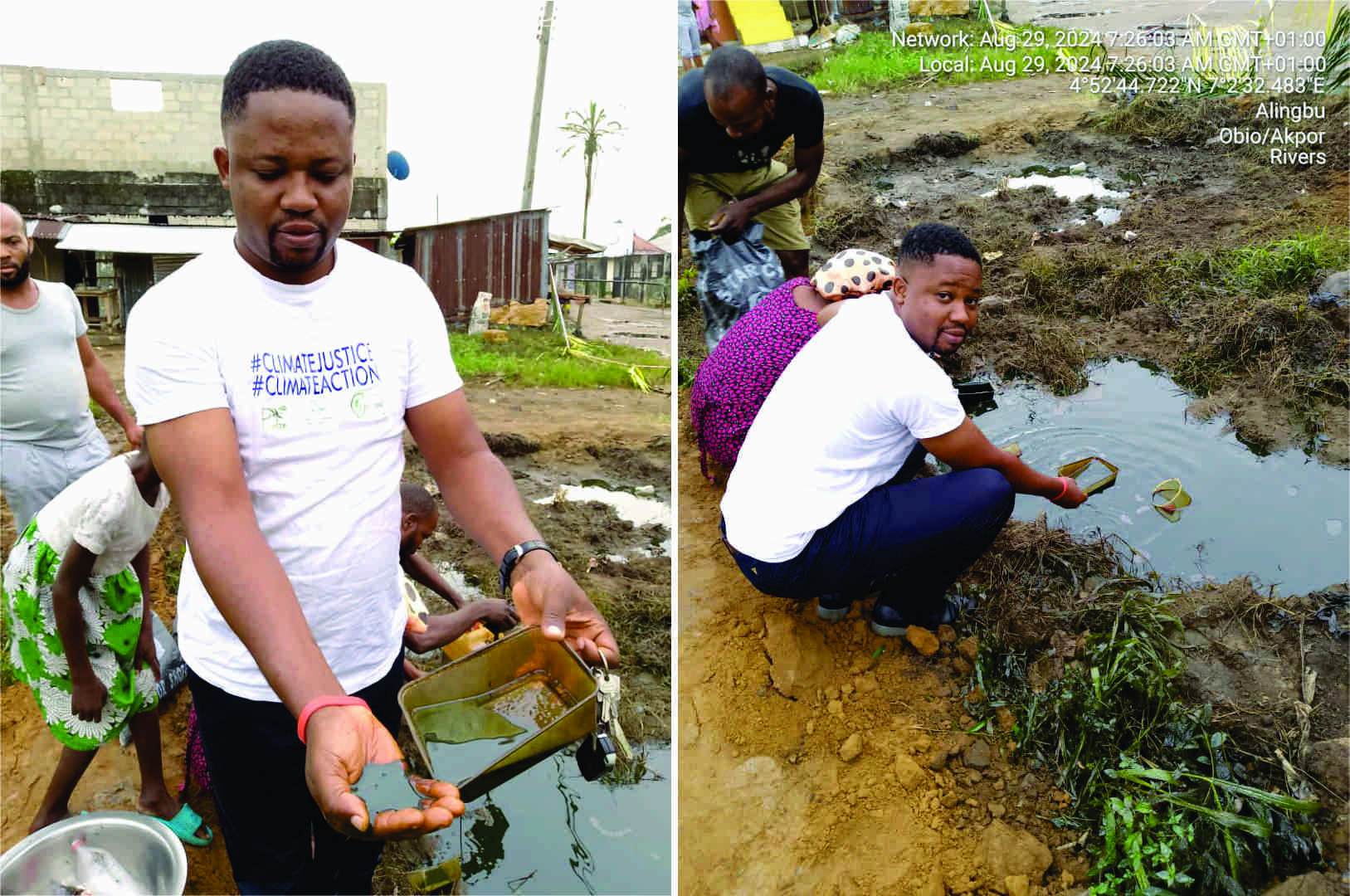By Tina Amanda
An oil spill from aging pipelines has devastated the Rumuoduwere community in Elelenwo, Rivers State, sparking urgent concerns from Pilex Centre, a Niger Delta-based NGO.
The spill, linked to an old Shell-owned pipeline, has contaminated water sources and farmland, intensifying fears of an escalating environmental crisis in the region.
During a visit to the site, Pilex Centre identified significant pipeline deterioration, with some pipes reportedly over 60 years old. Locals have noted that water from boreholes as deep as 150 meters smells like kerosene, suggesting underground crude oil contamination.
Shell and other agencies have attributed the spill to equipment failure, which has spread beyond the pipeline to private lands and water sources. Efforts to contain the disaster have been hampered by heavy rains, exacerbating damage to farmlands and worsening air quality. For the past five days, the atmosphere in the area has been described as “dense with heavy chemical fumes.”
Local leaders have expressed concerns over the growing health risks, as residents struggle to access clean water by digging even deeper wells, sometimes reaching depths of over 200 meters. Communities living near the spill site, including a church and private homes, have raised alarms about the long-term health impacts. They also highlighted the restricted access for independent monitors, who have been prevented from photographing or recording the spill site.
Courage Nsirimvo, Coordinator of the Pilex Centre for Civic Education Initiative, called for a comprehensive underground assessment by Shell and the National Oil Spill Detection and Response Agency (NOSDRA) to assess the full extent of the contamination. He also recommended independent evaluations of water contamination in Elelenwo and neighboring communities.
Nsirimvo’s recommendations included a declaration that water sources within 150 meters of the surface are undrinkable, along with the construction of a health center to monitor and treat residents exposed to polluted water and air.
He further advocated for the immediate replacement of aging pipelines across the Niger Delta in accordance with international best practices, and a moratorium on Shell’s divestment until proper decommissioning procedures are in place, as stipulated in the Petroleum Industry Act.
Nsirimvo also urged the release of the Host Community Trust Fund to address hunger and health concerns in affected areas and called for the expansion of the Niger Delta cleanup by the Hydrocarbon Pollution Remediation Project (HYPREP) beyond Ogoniland.
He emphasized the need to halt operations by Shell and other multinational oil companies until expired pipelines are replaced and the region is restored.
“The ongoing environmental degradation poses a severe threat to the health and livelihoods of Niger Delta communities. Immediate intervention by all stakeholders is essential to prevent further harm,” Nsirimvo stated.




